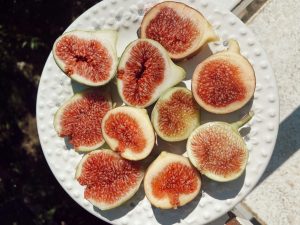The soft fruit known as a fig has thin, green or purple skin. Its flesh is typically red, and the entire fruit can be consumed. Figs have been used to treat gastrointestinal, pulmonary, reproductive, and endocrine disorders as well as other health issues.
This article highlights the health benefits of consuming this purple-skinned fruit, brought to you by BBC Good Food and Pharm Easy.
Contains antioxidants
The beneficial plant components known as polyphenols are abundant in figs, particularly ripe ones. By preventing oxygen from interacting with other molecules and damaging cells and tissues, these substances’ beneficial antioxidant qualities make them essential for controlling oxidation.
May help maintain healthy blood pressure
Fast food consumption has been rising daily, which might cause issues with high blood pressure. Your body’s potassium levels can become unbalanced as a result of high blood pressure. Because they are a high source of potassium, figs can naturally raise potassium levels, which may help lower blood pressure.

Good for the bones
Figs are a wonderful source of calcium, magnesium, and phosphorus, three minerals that are good for the bones. Studies indicate that figs have 3.2 times more calcium than other fruits, making them particularly high in this mineral. Being an excellent source of potassium may aid in reducing the calcium output in the urine brought on by a high-salt diet. Osteoporosis risk may be reduced as a result of this since it keeps calcium in the bones.
May help improve the heart
Being rich in potassium and fibre helps the body get rid of extra fat and lowers heart pressure. This can significantly enhance the condition of your heart. In addition to serving these two purposes, figs are a fantastic source of antioxidants, which not only aid in lowering free radicals but also triglycerides and bad cholesterol. Consequently, strengthens your heart and extends its life.

Good for the digestive system
Due to their high fibre content and ability to serve as a natural laxative, figs are frequently recommended to nourish and tone the intestines. Additionally, the fibre they offer includes prebiotic characteristics that nourish the gut flora and support a healthy gut environment, both of which aid digestive wellness.
Good for fertility
According to Pharmeasy, figs contain loads of iron which is good for fertility. In the entire female ovulation process, iron plays a crucial role. Low iron levels in men may decrease the quality and motility of sperm. To support reproductive health, it is still very frequently consumed with milk, notes the health publication.
ALSO SEE: Surprising health benefits of onion juice
The article was originally written and published by Johana Mukandila for BONA.
Feature image: Unsplash

